ARTICLES > LIFE STORIES
TORRIE’S AT TOP SPEED
Sprint sensation Torrie Lewis happens to have coeliac disease, but her diagnosis has fast tracked her success.
In full flight, Torrie Lewis is almost a blur. The Queensland-based athlete has been known as Australia’s fastest teen, with a stack of speed records already under her belt.
Torrie also happens to have coeliac disease – and her diagnosis was a turning point.
Born in Britain, Torrie showed early promise as a gymnast and after she immigrated to Australia with her mum Wendy at six years old, she reached national level. By nine years old, she had an intense training schedule of around 20 hours a week. She’d always thrived on hard work, but now something felt different. “I was getting up in the mornings feeling like I couldn’t move,” Torrie says. “I didn’t want to go to gym and when I did, everything was aching. I’d never had an injury, but now I just felt so sore and my flexibility was gone. When I had a week off during school holidays I knew I couldn’t go back.”
Shortly after quitting gymnastics, Torrie fell sick with shingles. “It seemed really random as I’d thought of it as an older person’s disease and I was only 10,” she says. “We went to my GP and got a bunch of blood tests so he could check everything: my thyroid, testing for diabetes, and also a coeliac antibody test.”
TORRIE’S TURNING POINT
The test revealed Torrie had coeliac disease, which explained another finding: she was severely iron deficient. “Our GP told me that to able to do that type of high-intensity training, with what was going on in my body due to the coeliac disease, that was pretty crazy. He said: ‘that’s why you quit, because you just physically couldn’t do it anymore.’”
While leaving gymnastics had been disappointing, Torrie started to feel stronger again on her gluten-free diet. Her mum noticed a difference, too. “My mood was better,” Torrie says. “Mum had thought I was just going through a pre-teen phase because I had a real attitude in the run-up to my diagnosis! But about a year later, I was lovely, and she realised it must have been because I was feeling so horrible inside.”
Just as importantly, Torrie’s energy returned and she was keen to be physically active again. “After I’d had an iron infusion and I was on my gluten-free diet, I was crazy hyperactive!” she laughs. Soon, she found an outlet she’d always loved: running. “I’d always been fast as a kid and used to beat the boys in school races. Vault had been my favourite in gym as I could sprint fast to the horse.”
Torrie started weekly Little Athletics and was spotted by a coach who took her on for extra training. She swiftly made state, then nationals. “And I just kept going and saw that I had a future there,” she says. As Torrie climbed to the top of the various under-16 ranks, she was talent-spotted by coach and sprint champion Gerrard Keating. Keating was Australia’s 100m record holder from 1985 to 1994 and competed in two Commonwealth Games 100m finals against the likes of Linford Christie and Ben Johnson. In Torrie, he saw another legend in the making and she flourished under his tutelage.
SPEEDING AHEAD
At 16 years old, she clocked a stunning 100m time of 11.33 seconds, which made her the third fastest under-18 woman in the world and Australia’s second all-time in the under-20s behind the 11.20 set by Raylene Boyle at the 1968 Mexico Olympic Games. It’s also Torrie’s personal best.
She still holds the under-13 and under-14 records in her former home state NSW, and in Queensland holds the 100m and 200m record for under-15, 16 and 17. Her personal best for 200m is a lightning 23.18 seconds.
Now 18, she’s set to blaze a trail in adult athletics, too. Her coach is certain she’ll be an Olympic medallist and future household name. “There are big, big things planned,” says Torrie, who hopes to be back on the Junior World Championships Aussie 2023 team after missing 2022 due to injury. “Then there’s the Paris Olympics in 2024 – I’ll be 19; it could be perfect.”
The level-headed athlete has even planned ahead to the 2032 Brisbane Olympics. “That one could be my last before I retire; I’ll be 28 and that would be a great way to finish.” But although she’s thrilled by her successes, Torrie runs first and foremost because she loves to.
“I can’t always remember my results,” she giggles. “Running just feels right. The runner’s high is real! Some people hate training, but I love it even more than competing.” She’s all too aware that without her coeliac disease diagnosis, she might – quite literally – have been on a very different track. “When the diagnosis made me quit gymnastics, it was the universe guiding me, I guess.”
TORRIE’S TIPS ON THRIVING GLUTEN FREE
ON EATING WELL
“Since being gluten free my diet is more varied. I’ve looked at more recipes and explored new things. I’ve always loved rice, and I make a great Singapore noodle dish with prawns and chicken. I’ve even made my own gluten-free calzone, pizzas, and pasta. I love cooking!
I made birthday cakes for my coach and my mum. They were lemon and coconut with white chocolate and coconut icing, from recipes I’d adapted. They said they tasted better than regular cakes with gluten. “I’ve learned that although you’re restricted, you still can enjoy food and discover different tastes and cuisines. You’ve just got to try different things and find out what you like and what suits you. You can definitely still have a great relationship with food.”
ON ROLLING WITH THE PUNCHES
“Sometimes mistakes just happen, even when you’re careful. I got ‘glutened’ six months after I was diagnosed. We were on the Gold Coast to watch the 2018 Commonwealth Games, and at a restaurant they accidentally brought me the garlic bread for a different table. They came rushing out and said sorry, but it was too late, I’d eaten two pieces. Straight afterwards I was on the shuttle bus to the stadium and I was not well at all. I ran off to the closest bathroom as soon as we got off that bus! “I was relieved I was watching, not competing!”
ON FINDING YOUR VOICE
“At first I didn’t really want to make an issue out of my coeliac disease. At restaurants where there was nothing for me to eat, I’d be quiet and not eat anything. Or I’d say: ‘I’ll go get something else and meet you guys afterwards.’ I didn’t want people to think I was doing it for attention, or that it was a ‘lifestyle’ thing. Being strong and speaking up was hard at first, but my mum encouraged me and she would always make me ask about gluten-free foods when we were eating out. It’s second nature now.”
ON SELF-ACCEPTANCE
“Coeliac disease is part of you now, and it’s not going to go away, so you’ve got to be able to accept it and embrace it. You can see it as an opportunity to explore a new world and meet new people. When I’ve met other people with coeliac disease we’ve really hit it off and there’s an immediate bond. My other friends are great, too. If we’re eating out they always double check to make sure it’s really gluten free. Even if I’ve asked already, they will ask again!”
READ THIS NEXT
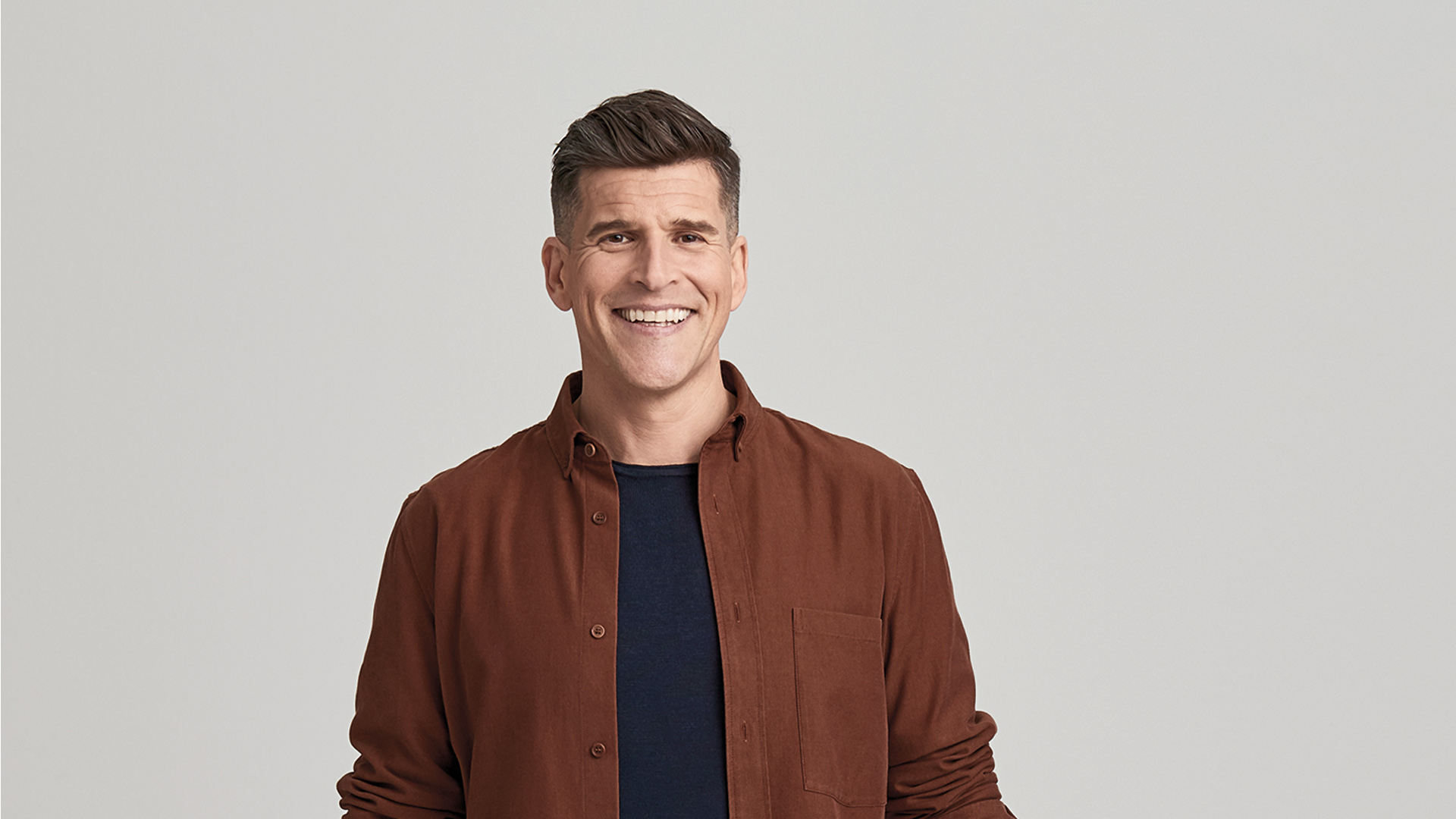
OSHER’S HEALING JOURNEY
The TV personality shares his health battles and how a coeliac disease diagnosis helped him back from the brink.
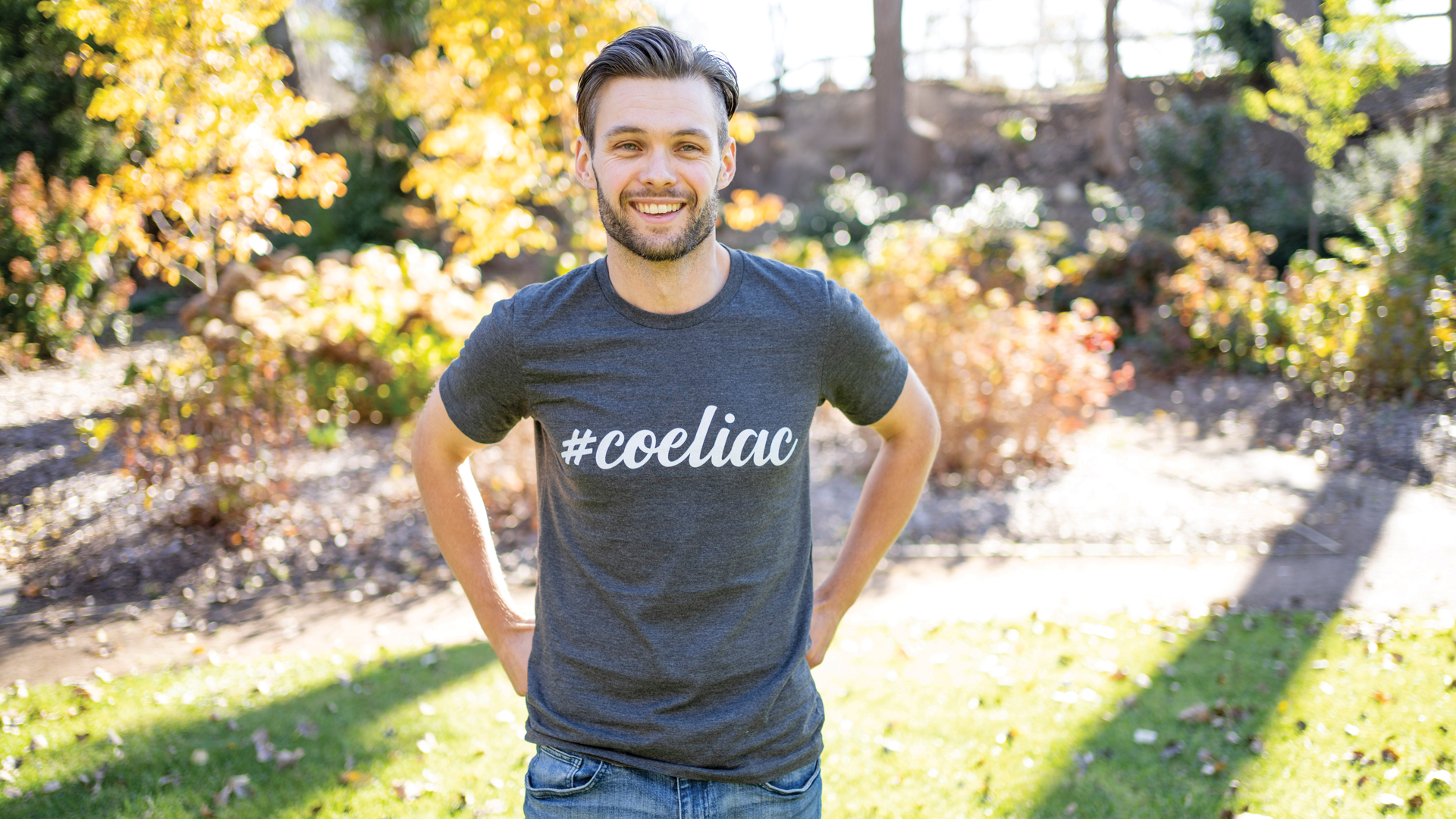
HOW I LEARNED TO LISTEN TO MY GUT
In the first of our coeliac disease stories, podcaster Ben Hampton shares the journey of his coeliac disease diagnosis, the surprise of developing an autoimmune condition despite a healthy lifestyle and the need for men to be proactive in seeking help.
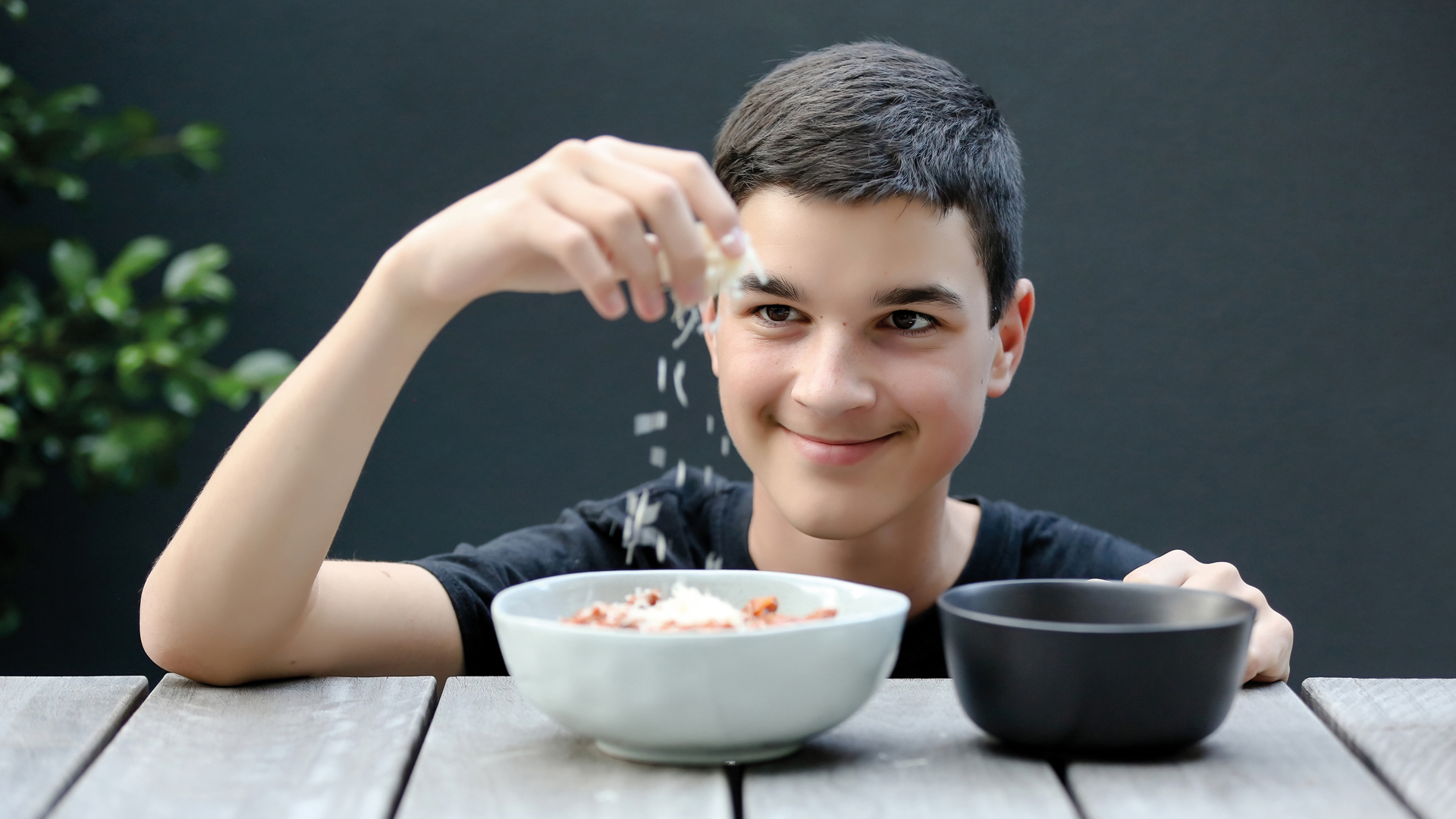
AN AUSSIE TEEN ON GROWING UP GLUTEN FREE
Diagnosed with coeliac disease at seven and now a teen entrepreneur, Isaac Tulemija shares how he handles everything from school to parties.
See more





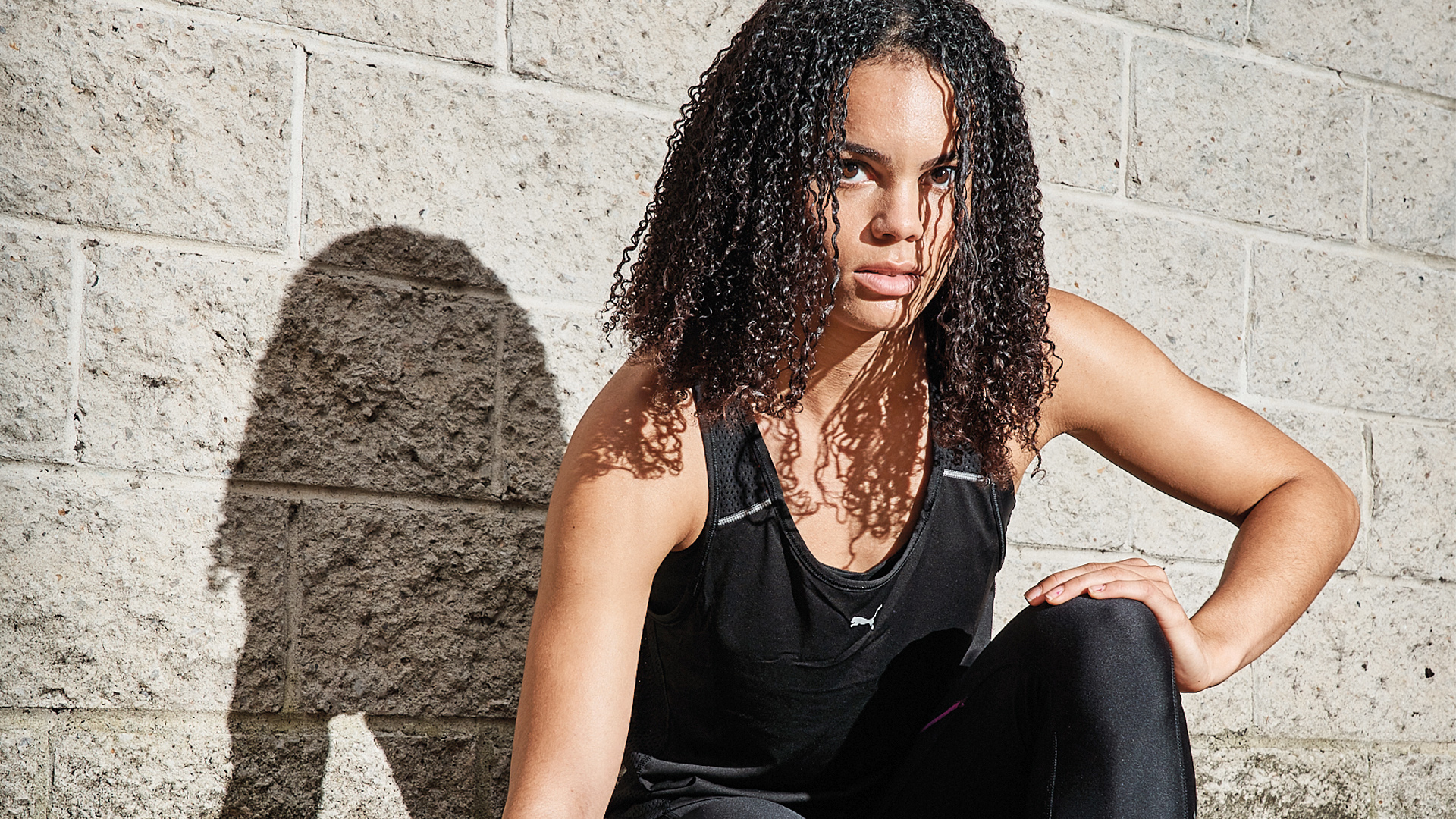




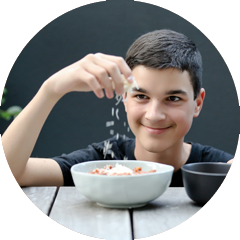

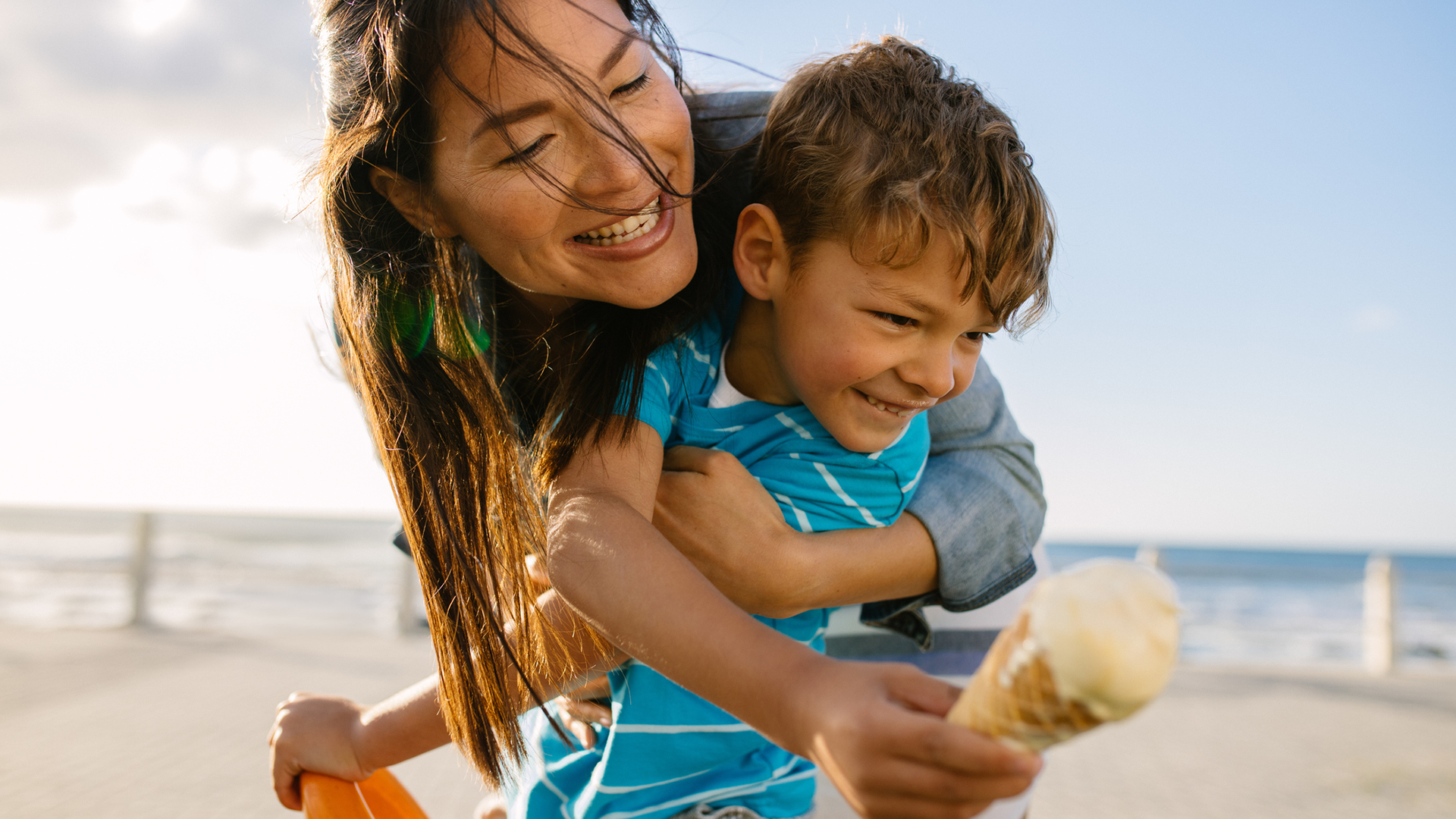


0 Comments